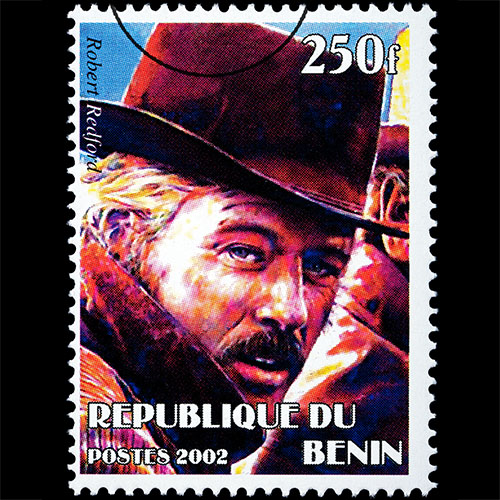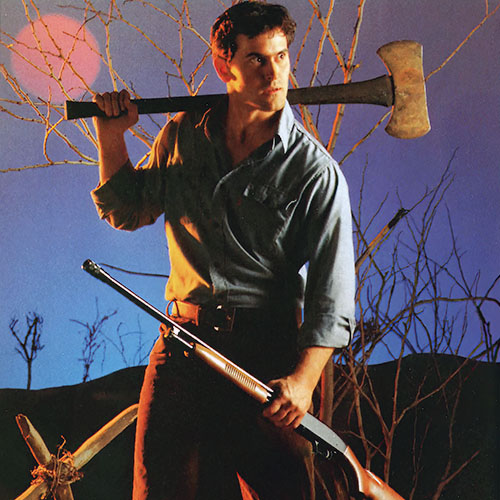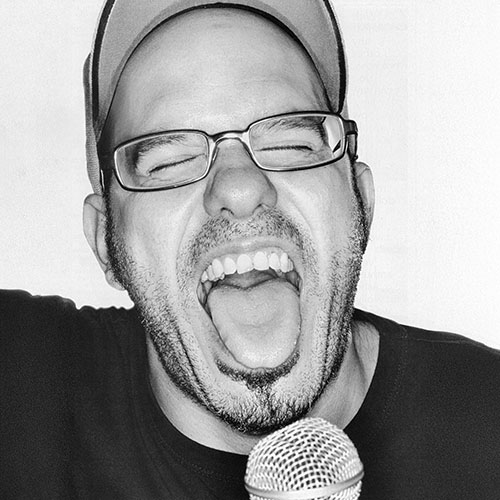The legendary director of The Exorcist, 77-year-old William Friedkin, tackles human foibles on a lesser — and funnier — scale in his new black comedy.
Friedkin Awesome
In 2006, William Friedkin stepped out of his comfort zone to direct the sci-fi movie Bug, which turned out to be a commercial and critical disaster. Now the Academy Award-winning filmmaker (for directing The French Connection) returns with Killer Joe, an offbeat examination of a Texas trailer-park family that hires a corrupt lawman (Matthew McConaughey) to kill a relative. The film has the edgy characterizations of Friedkin’s earlier work, plus the alluring Gina Gershon to bring life to its stark sexuality.
Why did you make Killer Joe?
Great script. It touches on a theme that has always interested me, which is the thin line between good and evil that’s in everyone. [Playwright] Tracy Letts is one of the two or three best dramatists around.
Killer Joe received an NC-17 rating. Why, and is it justified?
The ratings board is totally subjective. I used to know Aaron Stern well. He’s the guy who started the board. His first year, he had to rate The Exorcist. A half hour after he saw it with his board, he called and said it was going to get an R with no cuts. And he said, “We’re going to take a lot of heat for that, and so are you, but I think this film is important and should be seen. Now I’m going to call [Warner Bros. head] Ted Ashley and tell him that.” Warners and I fully expected we were going to get an X, which is why they opened it in 26 theaters. Some of the theaters in the first release played it as X. The board then was liberal. It then went through phases where it became more conservative. I believe it’s conservative today, but I believe the ratings are also inconsistent. There’s no rule book. The only rule I’ve ever heard of — and I don’t know if they follow it — is if you use the “F” word more than three times, you’re going to get, at best, an R.
Killer Joe is an assassin for hire. Were you ever asked to make the character more likable?
No. I think he is likable. He’s real. Captain America is likable, but is he real? Most of the movies today are from comic books or video games. Obviously someone likes those characters because they pay big bucks to see them.
Do you watch a lot of contemporary films?
No.
What did you think of the four prequels and sequels to The Exorcist?
I hear they were bad, but I’ve never seen them. I was told by an executive at Warner Bros. that they had a preview of Exorcist II in Pasadena. The executives pulled up in limos and told their drivers, “Get a sandwich, we’ll be out in two hours.” The limos left and the executives went inside and sat in the back row. About ten minutes later a guy stood up in the audience and yelled out, “The people who made this piece of shit are in this room.” Others stood up and said, “Where? Where are they?” “They’re in the last row, back there!” The Warner executives got up and ran out of the theater. Their cars were gone and they were chased down the block to the fast-food joint where the limos were waiting.
“[Killer Joe] touches on a theme that has always interested me, which is the thin line between good and evil that’s in everyone.”
Next year Warner Bros. is releasing yet another Exorcist Blu-ray to celebrate the film’s 40Tsup
anniversary, with new documentaries and special content. Why does the film still work?
It’s a great story. The characters are fascinating and it’s about the mystery of faith.
What story about the effect of Killer Joe amazed you most?
James Cagney and I were interviewed on a television show. When I got to the studio, the producer said, “Mr. Cagney is in the greenroom in makeup and he’d like to have a word with you.”
I had never met him, but of course I loved his films. I go into the greenroom and introduce myself and he says, “Sit down, son.”
I said, “Yes, sir.” He said, “I have a bone to pick with you.”
“What’s that, sir?”
“I had a barber for 37 years. He was the best barber I ever had. And he saw your movie and he left the barber profession to become a priest … and I’m mad at you for that.”
I said, “I’m sorry, sir. If I had known that I might not have made the film.”
With gay rights and gay marriage being hot-button issues during this election year, do you think a studio might remake Cruising or The Boys in the Band?
They’d never make Cruising today. The Boys in the Band … the idea is somewhat dated. There are still gay men in the closet, but they don’t need to be anymore because no one gives a shit. You’d have to be a total [ignorant] to care who’s gay or not gay. A lot of the press exists simply to out this or that famous person as being gay, but I don’t know anyone who really cares.
Al Pacino has said you never told him if he was the killer in Cruising.
I never told him, no. First of all, I didn’t know until I went in the cutting room. I don’t know if it would have changed his performance by so much as one frame. Why should he know if he’s the killer or not when the audience doesn’t know? Why is that important?
What’s your greatest regret in your film career?
That I never made Sorcerer with Steve McQueen [the film starred Roy Scheider]. McQueen could do more with a look than the average actor could do with a speech from Hamlet. He could do anything with a look. If you see McQueen in his best films, you can understand what he was thinking. When I made To Live and Die in L.A., I showed my three leads [William Petersen, Willem Dafoe, and John Pankow], who had little acting experience on the screen, Bullitt and told them, “This should be your only lesson in screen acting. Just look at McQueen and you will understand how to be a movie actor.”
Some decade later we know that Killer Joe earned a box office revenue of less than $5 million — with the vast majority of that coming from international box office — this despite the image of a deep fried state of Texas on the movie poster. Apparently Redneck fascination died out with Jeff Foxworthy in the 1990s. Who knew? … On the upside, we still enjoy Gina Gershon every chance we get, so some things endure at least.
And speaking of enduring, we decided to show off a couple of equally enduring dark comedy representations from Penthouse Magazine, simply because that seemed like an excellent idea. Should you be curious about origin, these few (SFW) photos happen to feature Rachel (October, 1996) and Julia Garvey (October, 1997). Hey, Halloween will be here soon — or has been here for a few weeks if you have been into a retail store lately — so we might as well get some costume ideas going. For the record, one size does not fit all in these examples. Friedkin would definitely approve.
It also probably goes without saying that you may see rather more revealing applications of these costumes on PenthouseGold. (It goes without saying, yet they really like us to say it. Go figure.) Should you wish to apply some of these costume variations in your own life, however, you should probably wait until you get back from trick or treating.




























